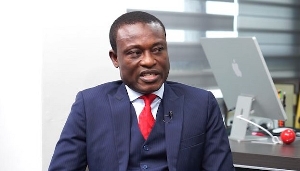Special Prosecutor Calls for Constitutional Reform, Corrupt Practices Act to Strengthen Anti-Corruption Fight
Ghana’s Special Prosecutor, Kissi Agyebeng, has reiterated his commitment to strengthening the Office of the Special Prosecutor (OSP) while calling for urgent legal and structural reforms to ensure its effectiveness in combating corruption.
Speaking at the UPSA Law School and One Ghana Movement Constitution Day Public Lecture, Agyebeng outlined three key reforms:
- Embedding the OSP into the Constitution
- Enacting a Corrupt Practices Act
- Establishing specialised anti-corruption courts
Institutionalising the OSP for Long-Term Impact
Mr Agyebeng stressed that the OSP must be entrenched in the constitution to ensure its longevity and independence beyond any individual’s tenure.
“First, we must write the Office of the Special Prosecutor into the constitution and board it up firmly. My tenure will end at some point, and like everyone else, I will leave the scene,” he stated.
He cautioned against equating the OSP’s success with his personal efforts, arguing that the fight against corruption must be institutionalised rather than personalised.
Need for a Corrupt Practices Act
The Special Prosecutor also advocated for the enactment of a Corrupt Practices Act to provide a clear, comprehensive legal framework for defining and prosecuting corruption-related offenses.
“The present formulation under section 79 of Act 959 is unhelpful and circuitous. It engenders confusion,” he argued.
He criticised Ghana’s current legal framework for corruption, describing it as convoluted and lacking clarity, which hinders effective enforcement.
Specialised Anti-Corruption Courts & Judicial Reforms
To expedite corruption cases, Agyebeng called for the creation of specialised anti-corruption courts staffed with judges specifically trained in handling corruption-related offenses.
“We must set up specialised anti-corruption courts manned by especially trained judges to swiftly and efficiently deal with corruption cases,” he said.
Additionally, he stressed the need to safeguard judicial independence, enhance lifestyle audits, and increase transparency in political party financing to curb the monetisation of elections.
Embedding Anti-Corruption in Education
Mr Agyebeng further proposed the introduction of anti-corruption studies in Ghana’s school curricula, arguing that early education on ethical governance and integrity would help nurture a generation committed to fighting corruption.
“We must channel our anti-corruption laws as a construct for national development,” he concluded.
His remarks add to growing calls for constitutional and legal reforms aimed at strengthening Ghana’s anti-corruption framework and ensuring accountability at all levels.







